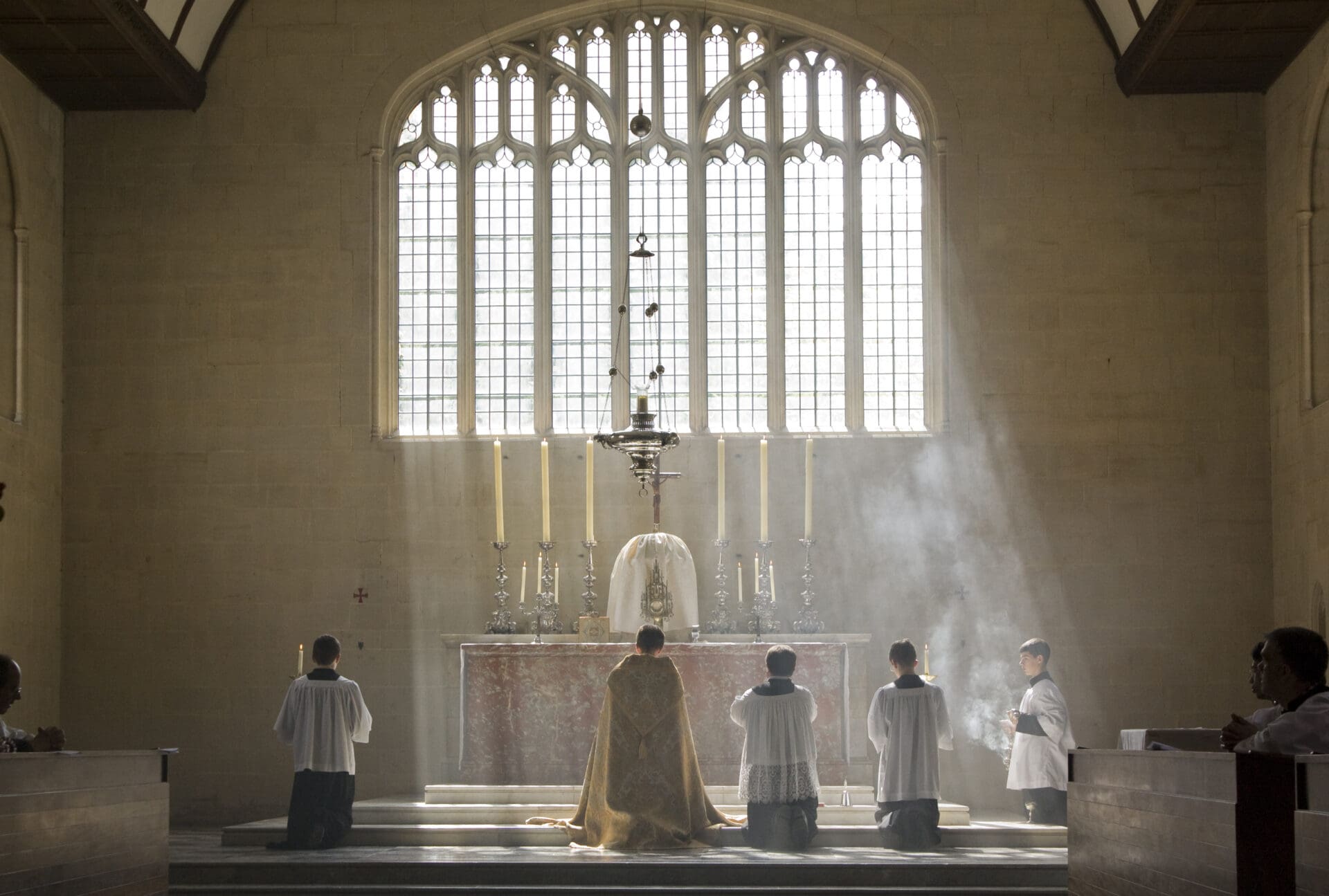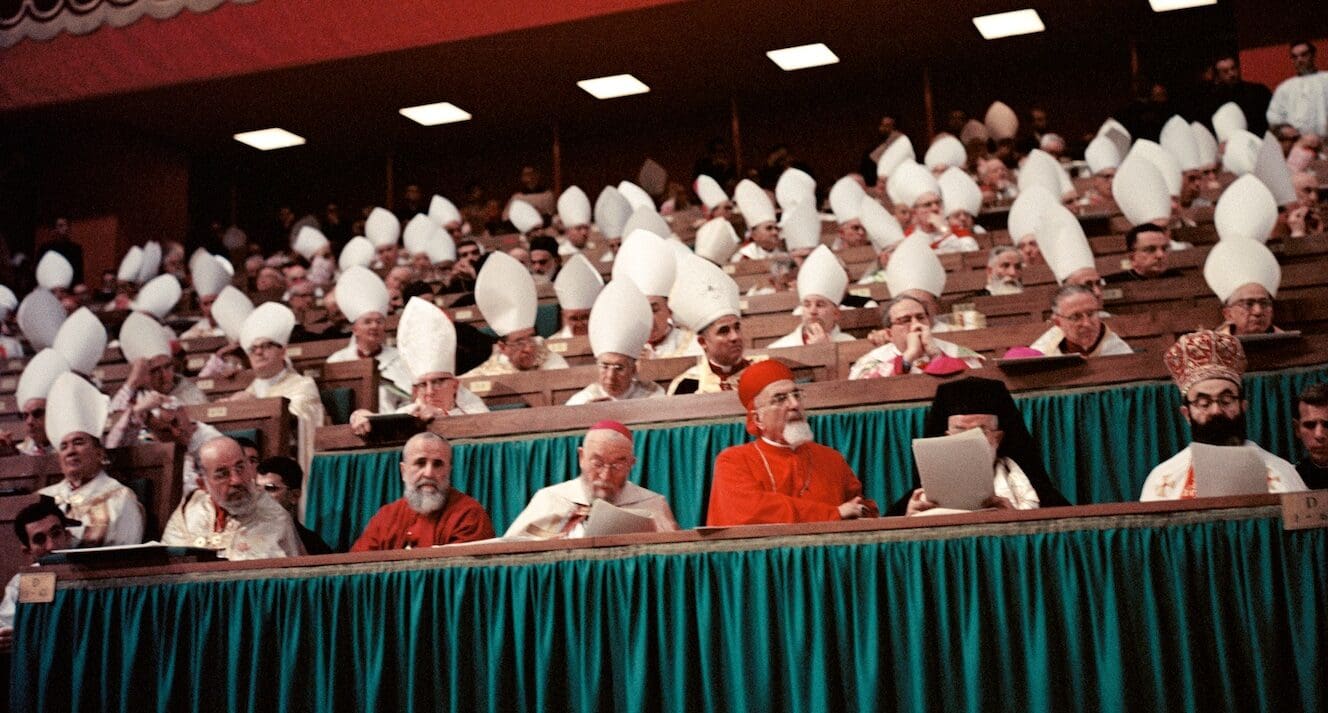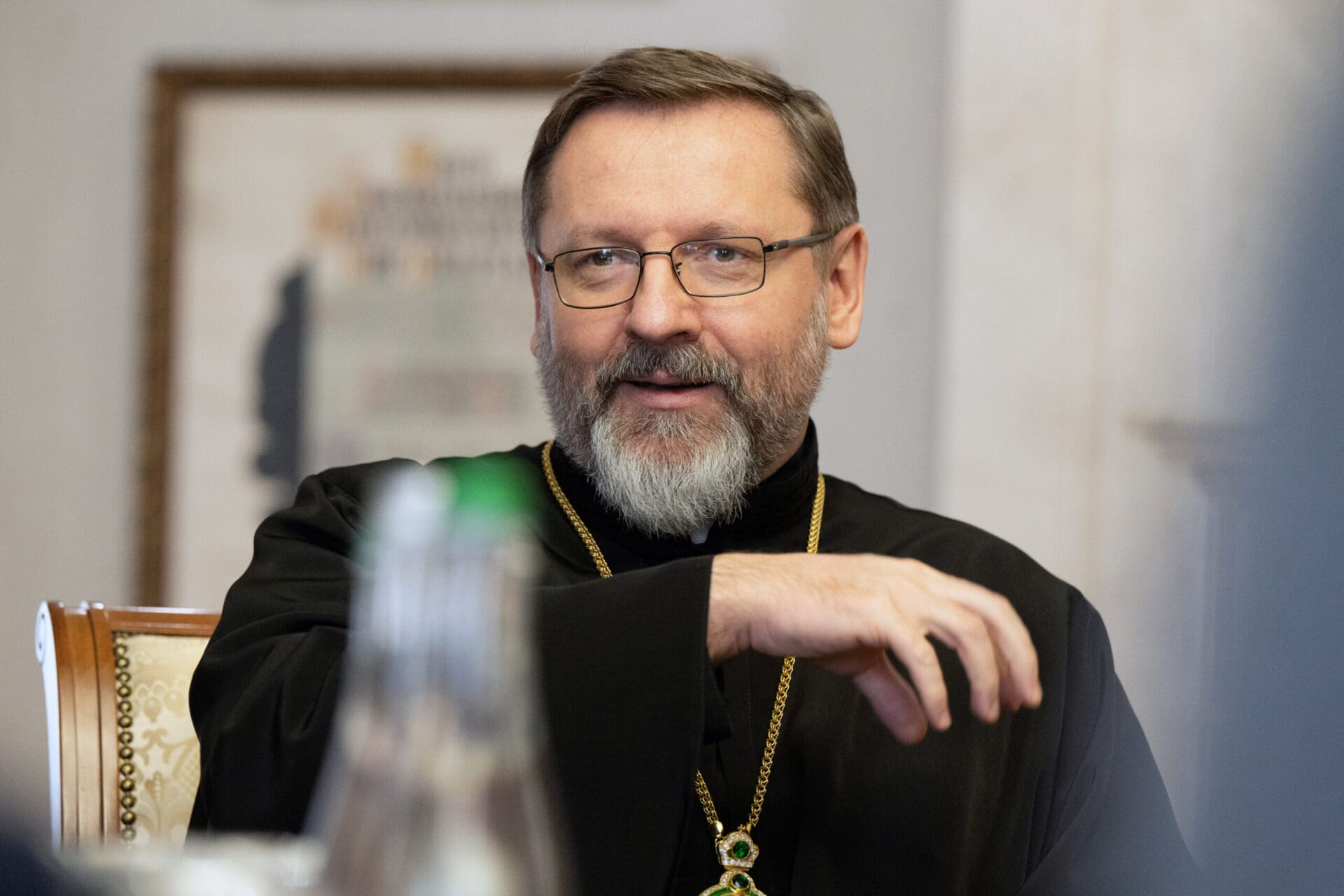Pope Francis enjoined the faithful to continue to embrace their role in and love for the liturgy in an address he delivered to participants in a liturgy conference in Rome this past January.
The conference, which drew diocesan heads of liturgical celebrations from around the world, was a formation course in the liturgy, and took place January16-20 at the Pontifical St. Anslem Institute in Rome. The conference’s theme, “Living liturgical action fully,” was taken up by Pope Francis in his address, given on last day of the event.
Citing his most recent document on the liturgy, the Apostolic Letter Desiderio Desideravi, Pope Francis commended the participants for attending an event which “is in keeping with the indications of the Apostolic Letter…on liturgical formation. Indeed, the conduct of celebrations demands preparation and commitment.”
Pope Francis stressed the importance of preparation, both academic and spiritual, for the proper celebration of the liturgy.
“This service of yours to the liturgy requires, besides in-depth knowledge, a profound pastoral awareness,” he said. “I rejoice to see that once again you are renewing your commitment to the study of the liturgy. As Saint Paul VI said, it is the ‘primary source of that divine exchange in which the life of God is communicated to us; it is the first school of our soul’ (Allocution for the closing of the Second Session of Vatican Council II, 4 December 1963). Therefore, the liturgy cannot be fully possessed, it is not learned like notions, crafts, human skills. It is the primary art of the Church, that which constitutes and characterizes her.”
In carrying on their work, Pope Francis called on the participants at the conference to keep in mind the vision for the liturgy set out by the Second Vatican Council.
“One of the cardinal principles of Vatican II returns here: we must always keep the good of the communities, the pastoral care of the faithful (cf. ibid., 34) before our eyes, to lead the people to Christ and Christ to the people. It is the primary objective, which must be in first place also when you prepare and guide the celebrations. If we neglect this, we will have beautiful rites, but without strength, without flavor, without meaning, because they do not touch the heart and the existence of the people of God.”
Pope Francis defined the theme of the conference, “to live liturgical action fully” not as an “aesthetic joy…but rather wonder.”
“Wonder is different to aesthetic pleasure: it is the encounter with God,” the pope said. “Only the encounter with the Lord gives you wonder. How can this objective be achieved? The answer is already found in Sacrosanctum Concilium. In paragraph 14, it recommends the formation of the faithful, but—the Constitution says—’it would be futile to entertain any hopes of realizing thus unless the pastors themselves, in the first place, become thoroughly imbued with the spirit and power of the liturgy, and undertake to give instruction about it. A prime need, therefore, is that attention be directed, first of all, to the liturgical instruction of the clergy.’”
In his address, Pope Francis also emphasized the importance of ars celebrandi, the proper art of celebrating the liturgy.
“I encourage you to help seminary superiors to preside in the best way possible,” the pope said, “to take care of proclamation, gestures, signs, so that future priests, along with the study of liturgical theology, learn how to celebrate well: and this is the style of presiding. One learns by watching daily a priest who knows how to preside, how to celebrate, because he lives the liturgy and, when he celebrates, he prays.”
Liturgy directors can also play a role in improving the liturgy throughout their dioceses, Pope Francis said in his address.
“Your task is not to arrange the rite for one day,” he said, “but to propose a liturgy that is imitable, with those adaptations that the community can embrace in order to grow in the liturgical life. In this way, gradually, the celebratory style of the diocese grows. Indeed, going to the parishes and saying nothing in the face of liturgies that are a little slapdash, neglected, badly prepared, means not helping the communities, not accompanying them. Instead, delicately, with a fraternal spirit, it is good to help pastors reflect on the liturgy, to prepare them with the faithful.”
Pope Francis closed his remarks by noting the importance of cultivating silence in the liturgy.
“In this age, we talk, we talk…. Silence. Especially before the celebrations—a moment that is at times taken for a social gathering,” he said.
“Silence helps the assembly and concelebrants to concentrate on what is to be done,” Pope Francis continued. “Often sacristies are noisy before and after celebrations, but silence opens and prepares for the mystery: it is silence that enables you to prepare for the mystery, it permits its assimilation, and lets the echo of the Word that is listened to resound.”
Image Source: AB/Lawrence OP on Flickr


